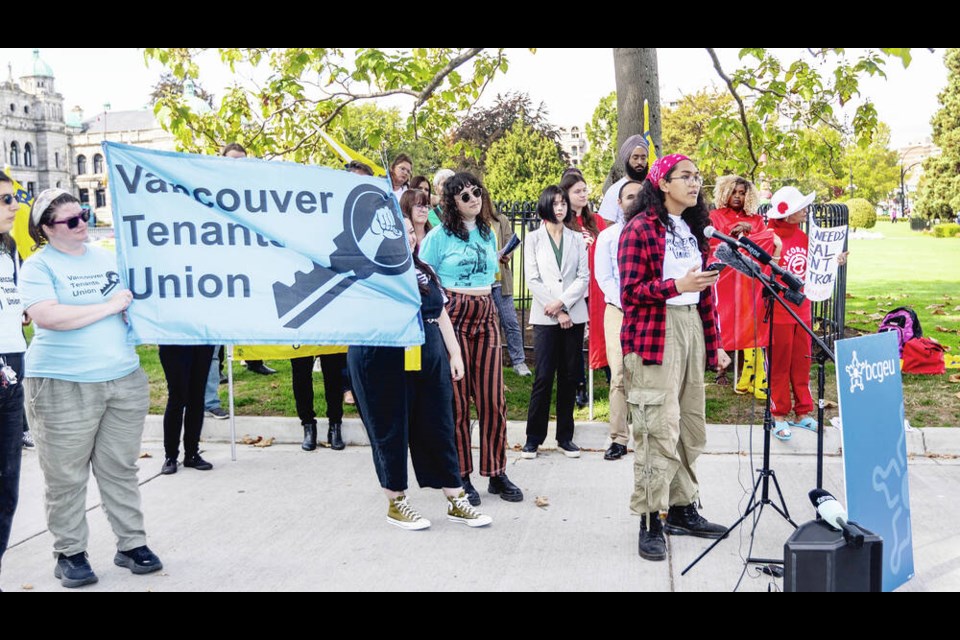The B.C. General Employees’ Union is calling on the provincial government to tie rental caps to units rather than to tenants as a way to address rising monthly rents.
Rents can increase each year only by a certain amount set by the province (3.5 per cent in 2024), unless the tenancy turns over, which allows landlords to set a new rent without any limit.
The union released a report Wednesday that looked at case studies of the “vacancy-control” policies in B.C., Ontario, Manitoba and P.E.I. and found no evidence that tying rent caps to units, which limits the amount landlords can raise the rent when a new tenant moves in, has had negative impacts on developing new rental-housing supply.
Instead, a lack of vacancy control is a “loophole” in B.C.’s rental laws that has allowed rents to increase between 10 and 23 per cent each year since 2019 in major cities, the union said.
In Victoria, the median advertised rent for a one-bedroom apartment is $2,288 and $2,525 for a two-bedroom, according to the real estate website Zillow. Costs in Nanaimo are a little lower at $1,760 for a one-bedroom and $2,325 for a two-bedroom.
Renters are being squeezed out of the market after decades of increasing rents that have far outpaced incomes, said Kari Michaels, executive vice-president of the B.C. General Employees’ Union.
“We want the government to recognize that vacancy control is a viable, proven policy that benefits the social good,” she said.
Recent numbers from the Canadian Rental Housing Index national database show 16 per cent of households in the capital region are paying more than 50 per cent of their gross earnings on rent and utilities. Conventional wisdom recommends spending up to 30 per cent of gross income on housing.
The report also found the average rent in B.C. increased by 30 per cent from 2016 to 2021, the largest rise of any province.
For years, B.C. was the “renoviction capital of Canada,” with landlords ending tenancies to renovate, allowing them to jack up rents when a new tenancy started, Michaels said.
When the province brought in rules that made it more challenging to evict renters for renovations, “all we saw was a shift in behaviour,” Michaels said, with landlords finding other reasons for evictions, such as occupation by the landlord or a close family member.
“The behaviour didn’t stop. It just shifted, because the incentive is still there.”
Enacting a vacancy-control policy would remove the financial incentive for landlords to evict renters, and prevent rents from increasing as quickly as they have in recent years, she said.
“There would be an immediate benefit to the over a million renters in B.C. who currently live in fear of eviction,” Michaels said.
The union was joined by organizations from across the province on the legislature lawn to rally for vacancy control Wednesday.
Hermender Singh Kailley, secretary treasurer of the B.C. Federation of Labour, said rents have increased so much that many workers can’t afford to live in the communities they work in. As people are pushed farther from their work, their commute times increase, they sacrifice time with their loved ones and traffic gridlock worsens, he said.
“That also takes a toll on the mental health of workers as well, having to drive an hour and a half to get into work. It’s not sustainable for the long run,” he said.
The report was commissioned by the union as part of its Affordable B.C. campaign, which is proposing solutions to address the housing shortage.



